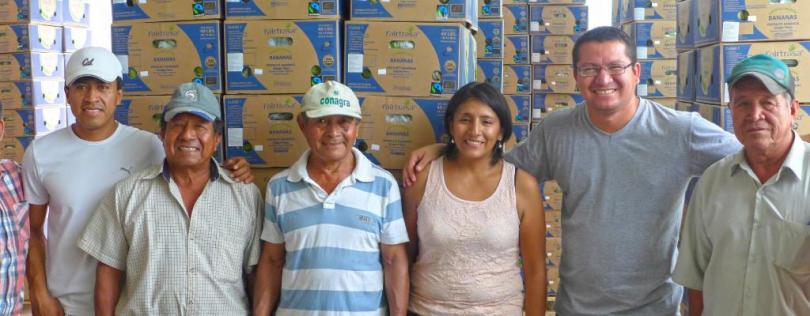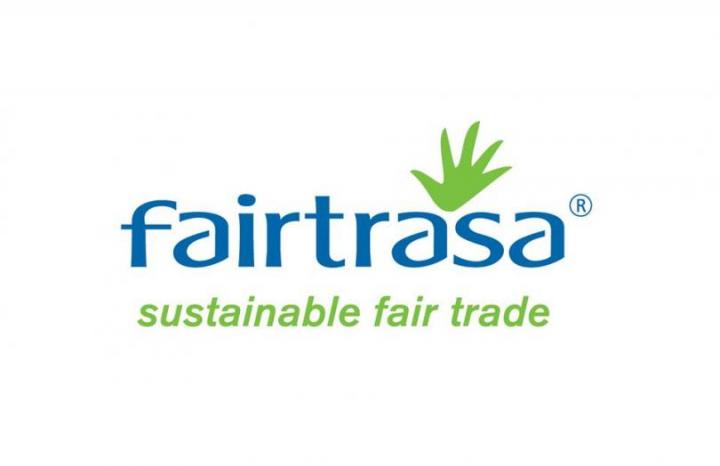





Keep this story going! Share below!
Patrick Struebi was able to create a unique 3 tiered farmer development model that aides small-scale farmers in becoming agro-entrepreneurs by providing them with the resources, training, and direct market access. "I started by just following the fair trade principals. I was the first one in the world with fair trade avocados as well as the fair trade wine from Argentina but following the fair trade rule".
Because Fairtrasa has farmers in Peru, Argentina, Chile, Mexico, Colombia, and Dominican Republic, Patrick noted "80% of the the 3 Tier Farmer Development Model is followed, while 20% of the model is tailored to fit the specific country the farmer is in". The 3 Tier Farmer Development Model is outlined below
Tier 1: Subsistence Farmers
Tier 2: Post-Subsistence Farmers
Tier 3: Independent Agro-Entrepreneurs
"This is not a philanthropy, what this is is that we go to farmers and well tell them you are my business partner. And we tell them you have to do a,b,c, and d to meet that quality and when you meet that quality we can pay the premium price".

Patrick Struebi was always interested in fair trade. After having an epiphany, he left his high-powered position at Glencore and moved to Mexico. After a few months in Mexico he was drawn to fair trade again, but realized that many farmers would be hesitant to talk to an outsider. "I really liked international trading, that is my passion, but it needs to be fair trading because some trade is not particularly fair".
Because he happened to be in Mexico, the largest avocado grower in the world. He went to investigate the farmers' living and working conditions. "I saw how they live in poverty, how difficult it was for them to make a living, and this is how I started the organization". He noted "It is quite restrictive difficult standards to comply with" in reference to becoming fair trade certified. He realized "the really poor farmers needed some support to get there" and thus the three tier model was born, which helps the farmer become fair trade certified. "The fair system should be a system that works for all".
Fairtrasa has been able to positively impact over 40,000 lives in 12 countries with 9,000 direct beneficiaries. Fairtrasa has been able to make over 1,300,000 USD in fair trade premiums that were distributed to cooperatives for business and community development.
Fairtrasa has been able to create a network of buyers and suppliers unlike any other. Not only is Fairtrasa benefiting from the fair trade business it does but also the agro-entrepeneurs that are their suppliers. This allows small-scale farmers to develop a global scale business mindset and enter the world food supply chain.
"This is not a philanthropy, what this is is that we go to farmers and we'll tell them you are my business partner. And we tell them you have to do a,b,c, and d to meet that quality and when you meet that quality we can pay the premium price".
Fairtrasa focuses on UN Sustainability goal 1, 2, and 12. They have been able to aid in lifting small-scale farmers out of poverty while focusing on responsible consumption and production.
Fairtrasa is determined to scale their model further by introducing technology (AgTech) to not only lift thousands, but millions of farmers out of poverty. This technology will help connect farmers with local agriculture entrepreneurs to share market data and information about crops, leading to increased yields and reducing waste.
Get stories of positive business innovations from around the world delivered right to your inbox.

Fairtrasa is a global social enterprise that aides small-scale farmers in escaping poverty and producing fair trade certified organic fruit and wine. Through their integrated supply chain, farmers are able to provide high quality fruit to Fairtrasa customers, receive a fair income, and help investing in their farms and communities.